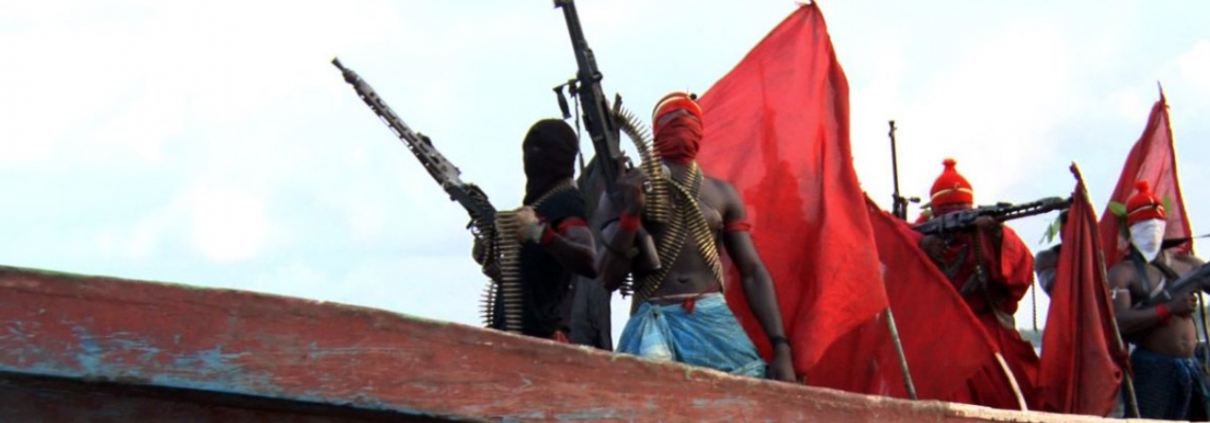Gulf of Guinea Declaration on Suppression of Piracy
On May 17, BIMCO launched the “Gulf of Guinea Declaration on Suppression of Piracy” as noted in an earlier article on our website.
On May 20, Togolese MPs adopted a law on the planning, protection, and enhancement of the 50-kilometer coastline from Ghana to Benin. This new strategic document was validated in Lomé by actors in the sector. The plan will in effect enable Togo to better monitor fishing activities, prevent the overexploitation of resources and limit the number of boats that can fish in the national waters. Moreover, it would help improve the revenues of local fishermen.
So why are efforts like this important and what does the declaration mean?
The recent Gulf of Guinea Declaration on the Suppression of Piracy is the latest international initiative to address the enduring problem of maritime crime, in all its forms, in the region. It is an indicator of the degree of frustration within the maritime industry that has deepened in recent years as the pirates have become emboldened and gained additional reach and capacity.
To date, it has been signed by 292 shipping companies, maritime organisations, and maritime service providers. As a statement, the very existence of the Declaration is a strong indicator to Governments in the region that the world’s shipping industry expects them to act and to generate results.
To underline that frustration, the International Maritime Bureau and other transnational bodies have clearly identified the waters of the Gulf of Guinea as the global hotspot for piracy and other forms of maritime crime, with a total 39 incidents in the offshore environment and port areas of the region in 2021 to date (including at least 46 seafarers being abducted from their vessels).
However, piracy is not the only form of maritime crime to plague the region. Stowaways, illegal boardings and theft from ships in ports and anchorages, illegal and unregulated fishing, illegal dumping of waste, smuggling of illicit cargo and contraband, and illegal bunkering operations are just some of the other facets of the maritime criminal environment that exist. All are linked in a loose network of ‘businesses’ that are facilitated and patronised by key influencers and enablers.
Multiple programs of local naval equipment procurement throughout the Gulf of Guinea states have failed to make any significant headway against the criminal gangs operating in the region. Legislative steps taken by local Governments, while encouraging, have also had a limited impact on the ability of the pirates to carry out their operations. Equally, multi-national cooperation among regional states has also produced only minor results and these initiatives have proven to be short-lived in many cases. The reasons for these apparent failures are the root cause of the challenges faced by mariners in the region.
With regards to the Niger Delta area of Nigeria, poverty remains an enduring factor contributing to the piracy problem, through the generation of a huge pool of potential manpower, i.e. young men who are prepared to go to sea to commit criminality for financial gain.
In many instances, and despite the best intentions of local Governments, pirates also face little chance of being caught or killed and are confident of success as a result. Local judicial systems also fail to tackle the problem effectively, with very few of the ‘big men’ behind the gangs ever facing a court. In the rare event that a sponsor or patron is caught, they are normally able to avoid trial through patronage or bribery. Those junior members of the gangs that are caught and tried receive only lenient sentences and often are back at sea after very short periods in prison.
Respective Navies in the region also face their own problems, either due to a lack of capacity or a lack of capability to undertake effective maritime security. By example, many previous local procurement programs have seen the acquisition of predominantly small, fast craft suitable only for inshore, short-duration interception operations as opposed to acquiring larger vessels capable of undertaking long duration, deterrence (patrol) type operations, particularly in areas further offshore.
Local Navies’ ability to respond to incidents has also been undermined by a lack of technological architecture to support the Command, Control, Communication and Intelligence (C4I) functions that are critical for a timely and effective response.
Some Navies and national maritime agencies in the region have taken positive steps to address these issues including Nigeria who as part of their Deep Blue Project have acquired multiple assets including vessels and aviation assets to ensure the safety and security of their territorial waters and EEZ.
These assets, working in conjunction with multiple Regional Maritime Coordination Centres (RMCCs) located throughout Nigeria’s coastline, should go some way to providing an effective deterrence and response capability and it is clearly hoped that this latest declaration will drive more Gulf of Guinea states to invest in similar initiatives.
Whether this latest Declaration will see more Gulf of Guinea states invest in effective maritime security to reduce the levels of piracy in the region remains to be seen. Regardless, experience has shown that no single measure by any single state is going to defeat the criminals who prey on shipping in the Gulf of Guinea.
What is required is a truly multi-state, coordinated effort to ensure that local Navies have the right tools (and manpower) to deliver their mission and objectives in accordance with a holistic, regional counter-piracy strategy. This includes the deployment of assets that are fit-for-purpose to tackle the piracy problem, as well as investment in the right level of C4I architecture (e.g. the Regional Maritime Control Centres (RMCCs) established in Nigeria) that can provide accurate, timely and relevant intelligence to the Navy and other responders.
A thorough shake-up of local judicial systems to make piracy a high-risk enterprise is also necessary and the social drivers of instability that exist onshore, i.e. which generate the pool of manpower that pirate gangs require, also need addressing.


